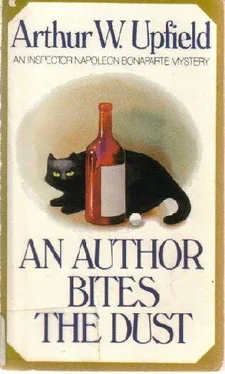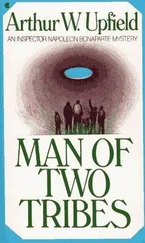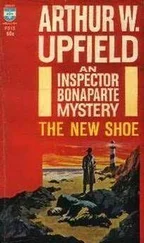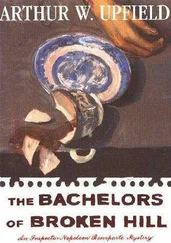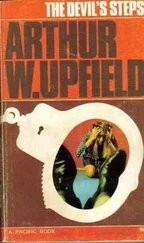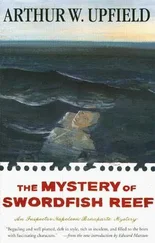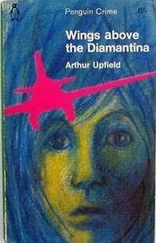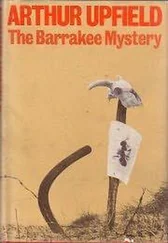Arthur Upfield - An Author Bites the Dust
Здесь есть возможность читать онлайн «Arthur Upfield - An Author Bites the Dust» весь текст электронной книги совершенно бесплатно (целиком полную версию без сокращений). В некоторых случаях можно слушать аудио, скачать через торрент в формате fb2 и присутствует краткое содержание. Жанр: Классический детектив, на английском языке. Описание произведения, (предисловие) а так же отзывы посетителей доступны на портале библиотеки ЛибКат.
- Название:An Author Bites the Dust
- Автор:
- Жанр:
- Год:неизвестен
- ISBN:нет данных
- Рейтинг книги:5 / 5. Голосов: 1
-
Избранное:Добавить в избранное
- Отзывы:
-
Ваша оценка:
- 100
- 1
- 2
- 3
- 4
- 5
An Author Bites the Dust: краткое содержание, описание и аннотация
Предлагаем к чтению аннотацию, описание, краткое содержание или предисловие (зависит от того, что написал сам автор книги «An Author Bites the Dust»). Если вы не нашли необходимую информацию о книге — напишите в комментариях, мы постараемся отыскать её.
An Author Bites the Dust — читать онлайн бесплатно полную книгу (весь текст) целиком
Ниже представлен текст книги, разбитый по страницам. Система сохранения места последней прочитанной страницы, позволяет с удобством читать онлайн бесплатно книгу «An Author Bites the Dust», без необходимости каждый раз заново искать на чём Вы остановились. Поставьте закладку, и сможете в любой момент перейти на страницу, на которой закончили чтение.
Интервал:
Закладка:
Arrived at the offices of the Monarch Publishing Company, he asked to see someone in authority.
“My name is Napoleon Bonaparte,” he said bluntly to a large man behind a resplendent desk. “I am a visitor to this country from South Africa, where I am known as an author and journalist. I am a strong admirer of the works of I. R. Watts. You publish his books, and you would be bestowing a great favour on me if you gave me his address.”
“That, I regret, I cannot do, Mr-er-Bonaparte,” stated the large man. “It would be against the fixed policy of this firm to give to anyone the address of its authors. However, if you care to write to I. R. Watts, I’ll have the letter forwarded.”
“I thank you. Yes, perhaps that will be the best way,” Bony agreed. “Could you relent so far as to inform me if I. R. Watts is living in this State?”
“Oh yes, that is so.”
“Thank you. Forgive me for presuming once more. Can you tell me exactly whatis commercial fiction?”
The publisher smiled as he might at a harmless lunatic.
“Commercial fiction is any piece of fiction that will sell.”
“Oh! What, then, is literature?”
“Same thing, with the addition of non-fictional writings up to standard for offering for sale.”
“Ah! The same thing!” Bony murmured. “Thank you. I have been given to understand that in this country there is a distinct difference between literature and commercial fiction.”
The publisher smiled, saying, “The distinction doesn’t exist in any publishing house anywhere in the world.”
“Again I thank you, sir,” Bony said. “I haven’t read any Australian authors other than I. R. Watts. May I assume that there are other masters of Australian literature?”
“Thousands of ’em, Mr Bonaparte, tens of thousands of them. A master of literature is the man, or the woman, who enters a bookshop or a library with money to spend on books.”
“Just so! Very neat indeed,” Bony exclaimed. “I thank you. Good morning. I’ll write to I. R. through this address.”
Still pleased with the world, Bony walked down Swanston Street, strolled in and out of several book shops, filling in time until he came to stand outside the main entrance of the newspaper building where Nancy Chesterfield marketed vanity. He continued to stand there until three minutes past one o’clock, the time set for his luncheon appointment. When he went up in the lift it was four minutes past one, and when he entered Nancy Chesterfield’s office he was exactly five minutes late.
“Why, it’s Inspector Bonaparte!” she exclaimed.
“My apologies for being late, Miss Chesterfield. I was detained on a quest for information. There is no need to ask after your health.”
“Neither is there need to ask after your own,” she countered, her brows arched.
“My health concerns me less than my appetite. I could eat-anything.”
She was putting on her gloves, and she looked up from them to say, “You have no regrets for having deceived a poor female?”
“I am the gayest deceiver in the country.”
The blue eyes clouded. “What is it you want from me?” sheasked, her voice brittle.
“Table companionship, the envy of other men, and to be informed on the difference between literature and commercial fiction. In return, I am able to give-well, very little. You see, I am a person of no importance in the political, the social, or the literary world. How did you unmask me?”
The cloud vanished from her eyes, and her voice shed its brittleness.
“That was easy,” she said. “After you left the other day I rang through to the morgue-that’s our Records Room, you know. They found your name easily enough, your profession, all about you, even that you caught a swordfish weighing over four hundred pounds.”
Bony laughed without restraint, and she laughed with him.
“And I went to no end of trouble in having the editor of theJohannesburg Age prepared to receive an inquiry about me. Alas, I am becoming too famous. Well, do we go along?”
“Of course, Mr Bonaparte. I would have been disappointed had your courage failed you.”
He opened the door and she passed into the corridor. He said, before they reached the lift, “My courage often fails, Miss Chesterfield, but my will to succeed, never.”
“To succeed in what?”
“In what I set out to accomplish.”
They talked of nothing as they descended to the street level, and he accompanied her to her car parked outside the building. They continued to talk of nothing as they drove to a women’s club in Spencer Street.
“Being a foreigner in Victoria, Mr Bonaparte, you are lunching with me,” she explained. “You want to talk to me, don’t you? Cross-examine me, and the rest of it? As a matter of fact, I want to talk to you. Here we may talk.”
“You are being exceedingly generous,” he said, quietly.
She examined him with thoughtful appraisement, liking the cut of his light-grey suit, the expensive shirt, the tasteful tie. She liked his face and the shape of his head, and the way he did his hair. He was a new experience to her, and shewas liking that, too.
Herself smartly tailored in a blue-grey suit, with a suggestion of flame in the soft red of her blouse, and wearing a small black hat that threw into relief the tint of her perfectlycoiffured hair, Nancy Chesterfield was an experience quite new to Napoleon Bonaparte. As they faced each other across the white and silver table, the eyes of two fencing mastersclashed, held firmly. She was the first to speak, and she astonished him.
“If you want any assistance in this Mervyn Blake business, I’ll give you all I can.”
“Mervyn Blake business!” he echoed.
“It is why you are staying with Miss Pinkney. It is why-” and she smiled-“you are pursuing me.”
“It is admitted, Miss Chesterfield.”
“I have a friend in the C.I.B. who knows something of you,” she told him. “He said that in certain circles you are known as the man who never fails.”
“Partially true, only partially, Miss Chesterfield. I have failed to instil into my eldest son’s mind the necessity for conservative spending. I have failed my long-suffering wife. I have-”
“Never failed to-the word isfinalize, and I like it-never failed to finalize an investigation.”
“I have certainly been fortunate in my professional career,” he said, unsmilingly.
“To what do you owe your uninterrupted successes? It sounds as though I were interviewing you, doesn’t it?”
“I think I owe it to patience, to a disregard of inconvenient orders from superiors, and to a slight knowledge of human psychology.”
“And,” she took him up, “to an extraordinary mixture of pride and humility. You had a lot of hurdles to get over, didn’t you? Almost as many as confronted me. We have the same type of mind, Mr Bonaparte. We started, I imagine, from the same scratch line. Mervyn Blake was like us, but he failed. We have been successful because we love our work. He failed because he wanted the rewards with all his passionate heart, without having to work too hard for them. For him, writing was a means to an end, and the end was fame. With us, were we creative writers, the end would be the joy in creative writing and the fame to go to hell. I liked Mervyn Blake. He had many fine qualities. I want to help you unearth his murderer.” Her mouth tightened, and then she asked, “May I call you Nap?”
It brought the flashing smile.
“If it pleases you,” he told her. “If you want to please me, call me Bony.”
“Bony it shallbe, and you shall call me Nan. Don’t think me swift, because I’m not really. I want you to treat me as an ally, not a suspect, and I want you to accept the relationship without any waste of time. Don’t let us fence any longer. We both know that Mervyn Blake didn’t just die.”
Читать дальшеИнтервал:
Закладка:
Похожие книги на «An Author Bites the Dust»
Представляем Вашему вниманию похожие книги на «An Author Bites the Dust» списком для выбора. Мы отобрали схожую по названию и смыслу литературу в надежде предоставить читателям больше вариантов отыскать новые, интересные, ещё непрочитанные произведения.
Обсуждение, отзывы о книге «An Author Bites the Dust» и просто собственные мнения читателей. Оставьте ваши комментарии, напишите, что Вы думаете о произведении, его смысле или главных героях. Укажите что конкретно понравилось, а что нет, и почему Вы так считаете.
